Digital marketing refers to the promotion of products, services, or brands using various digital technologies such as search engines, social media platforms, email, mobile applications, and websites. It is a complex and multifaceted field that encompasses various techniques, strategies, and tools.
At its core, digital marketing is all about understanding your audience and tailoring your message to their needs and preferences. This involves using data analysis and market research to identify target demographics, develop buyer personas, and create compelling content that resonates with your audience. One of the key benefits of digital marketing is its ability to provide highly targeted and personalized messaging. By leveraging data analytics and market research, digital marketers can identify specific demographics, behaviors, and interests to create messaging that resonates with their intended audience.
What Is Digital Marketing?
Digital marketing, also called online marketing, refers to all marketing efforts that occur on the internet. Businesses leverage digital channels such as search engines, social media, email, and other websites to connect with current and prospective customers. This also includes communication through text or multimedia messages.
Digital marketing is a rapidly evolving field that necessitates technical expertise, creative thinking, and strategic planning to achieve success. Digital marketers must be able to adapt to changing trends and consumer behaviors, experiment with innovative approaches, and constantly refine their campaigns to get the best outcomes.
Overall, digital marketing is a potent tool for businesses and brands to connect with their target audience, establish relationships, and achieve growth. Whether you are a small startup or a large corporation, digital marketing can help you attain your goals and stay ahead of the competition in today's digital era.
Why is Digital Marketing Important?
The "why" of digital marketing refers to the reasons why businesses and brands should invest in digital marketing? There are several compelling reasons for using digital marketing as a part of a comprehensive marketing strategy:
- Reach a wider audience: Digital marketing allows businesses to reach a global audience, irrespective of their geographic location. It can help businesses expand their customer base and reach new markets that were previously inaccessible.
- Cost-effective: Digital marketing is typically more cost-effective than traditional marketing methods like TV, print, and radio advertising. Digital marketing campaigns can be tailored to specific budgets, and the results can be tracked in real-time, allowing businesses to optimize their spend for maximum ROI.
- Targeted advertising: Digital marketing allows businesses to target specific demographics and audiences with personalized content that resonates with their interests and behaviors. This level of targeting can result in higher engagement rates and more conversions.
- Measurable results: Digital marketing campaigns can be tracked and measured in real-time, providing businesses with detailed insights into their performance. This data can be used to refine campaigns and optimize them for better results.
- Brand building: Digital marketing provides an opportunity for businesses to build their brand online through social media, content marketing, and other tactics. By consistently delivering valuable content to their target audience, businesses can establish trust and credibility, which can lead to long-term customer relationships.
How to do Digital Marketing?
Digital marketing encompasses a broad range of tactics and strategies, but here are some general steps that businesses can take to implement a successful digital marketing campaign:
- Define your goals.
- Identify your target audience.
- Establish a budget for each digital channel.
- Create engaging content.
- Conduct keyword research.
- Define your goals: When you get started with digital marketing, it's critical to identify and define your goals since you’ll craft your strategy with them. For instance, if your goal is to increase brand awareness, you might want to focus on reaching new audiences via social media.
- Identify your target audience: We've mentioned this before, but one of the biggest benefits of digital marketing is the opportunity to target specific audiences – however, you can't take advantage of that benefit if you haven't first identified your target audience .Of course, it's important to note your target audience might vary depending on the channel or goal(s) you have for a specific product or campaign.
- Establish a budget for each digital channel: Your budget will depend on the elements of digital marketing you use. If you're focusing on inbound techniques like SEO, social media, and content creation for a pre-existing website, the good news is you don't need a big budget at all. You can aim to create high-quality content your audience will want to consume, where the only investment you’ll need is your time.
- Create engaging content: Once you know your audience and have a budget, it's time to start creating content for the various channels you will use. This content can be social media posts, blog posts, PPC ads, sponsored content, email marketing newsletters, and more .Of course, any content you create should be interesting and engaging to your audience because the point of marketing content is to increase brand awareness and improve lead generation.
- Conduct keyword research. Digital marketing is all about reaching targeted audiences through personalized content — all of which can't happen without effective keyword research. You'll still want to conduct keyword research even if you don't have a full-time SEO strategist. Try creating a list of high-performing keywords related to your products or services, and consider long-tail variations for added opportunities.
 How to Turn Your Photos into Ghibli-Style Art with ChatGPT for Free
How to Turn Your Photos into Ghibli-Style Art with ChatGPT for Free Top 10 AI Tools for Plagiarism-Free Content Writing: Boost Your SEO & Digital Marketing Efforts
Top 10 AI Tools for Plagiarism-Free Content Writing: Boost Your SEO & Digital Marketing Efforts The Rise of Graphic Designing in 2025: A Career Guide.
The Rise of Graphic Designing in 2025: A Career Guide. The Rise of Video Editing: A Crucial Skill in 2025
The Rise of Video Editing: A Crucial Skill in 2025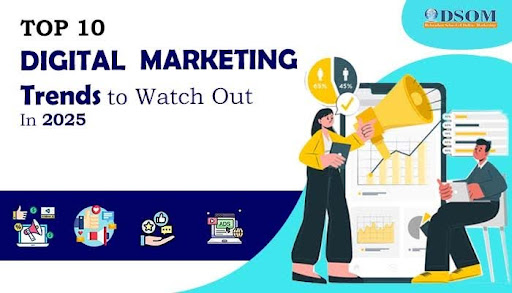 Top 10 Digital Marketing trends in 2025
Top 10 Digital Marketing trends in 2025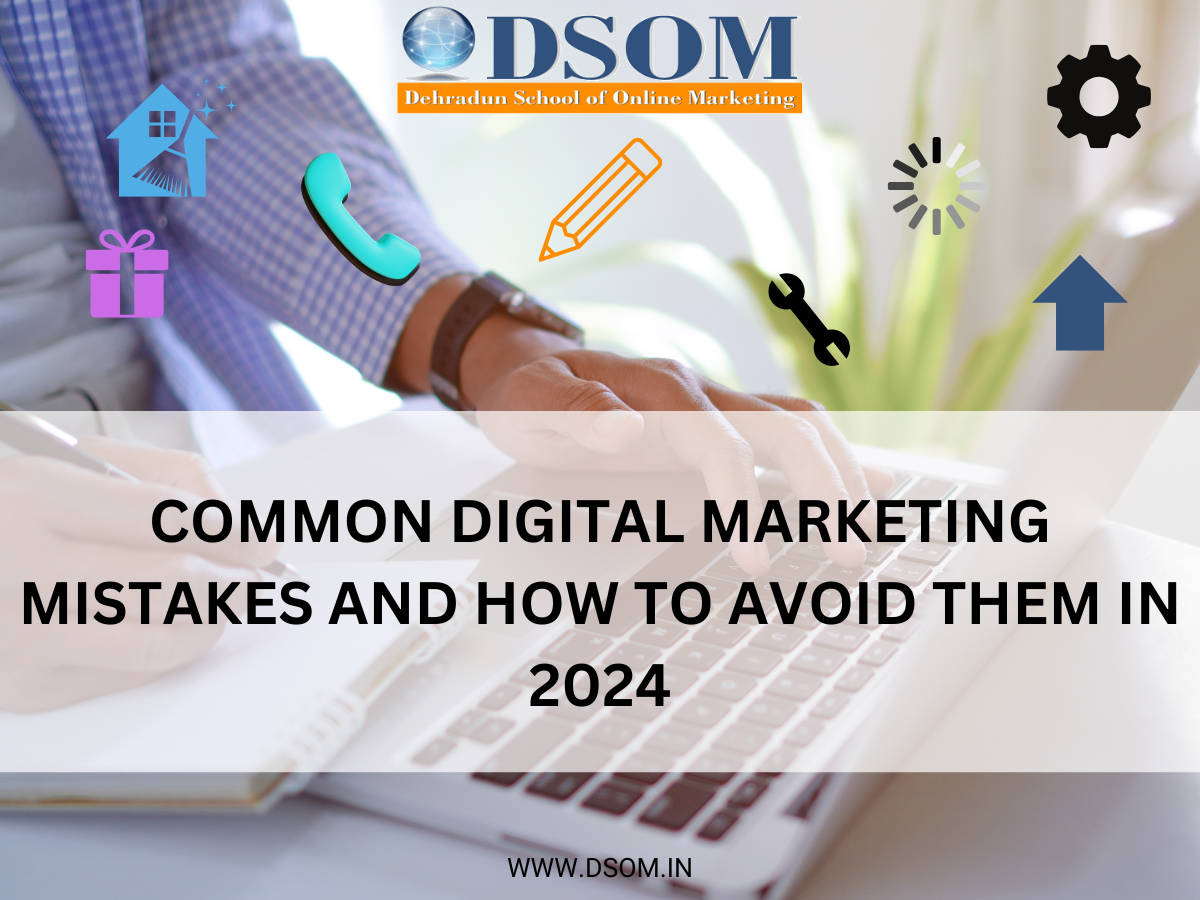 Common Mistakes in Digital Marketing and How to Avoid Them 2025
Common Mistakes in Digital Marketing and How to Avoid Them 2025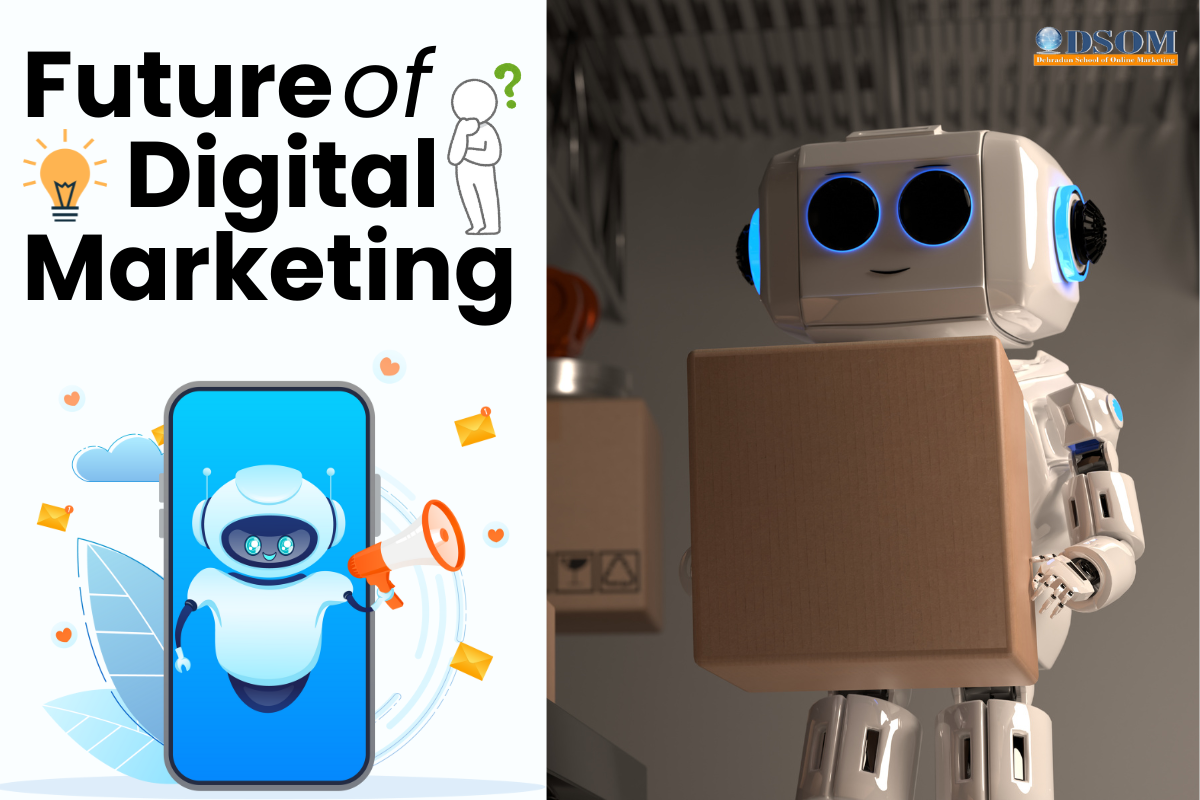 The Future of Digital Advertising: What You Need to Know
The Future of Digital Advertising: What You Need to Know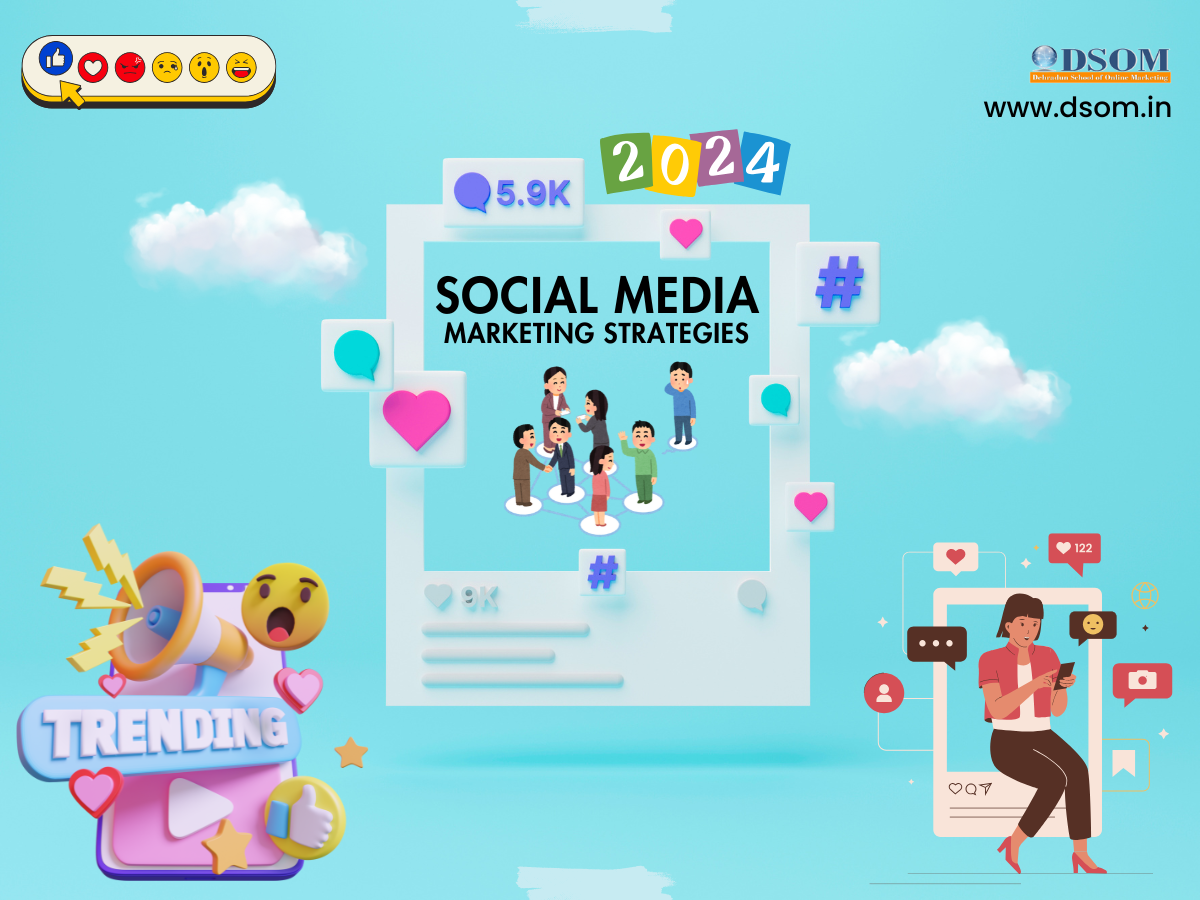 Social Media Marketing in 2024: Strategies for Maximum Engagement
Social Media Marketing in 2024: Strategies for Maximum Engagement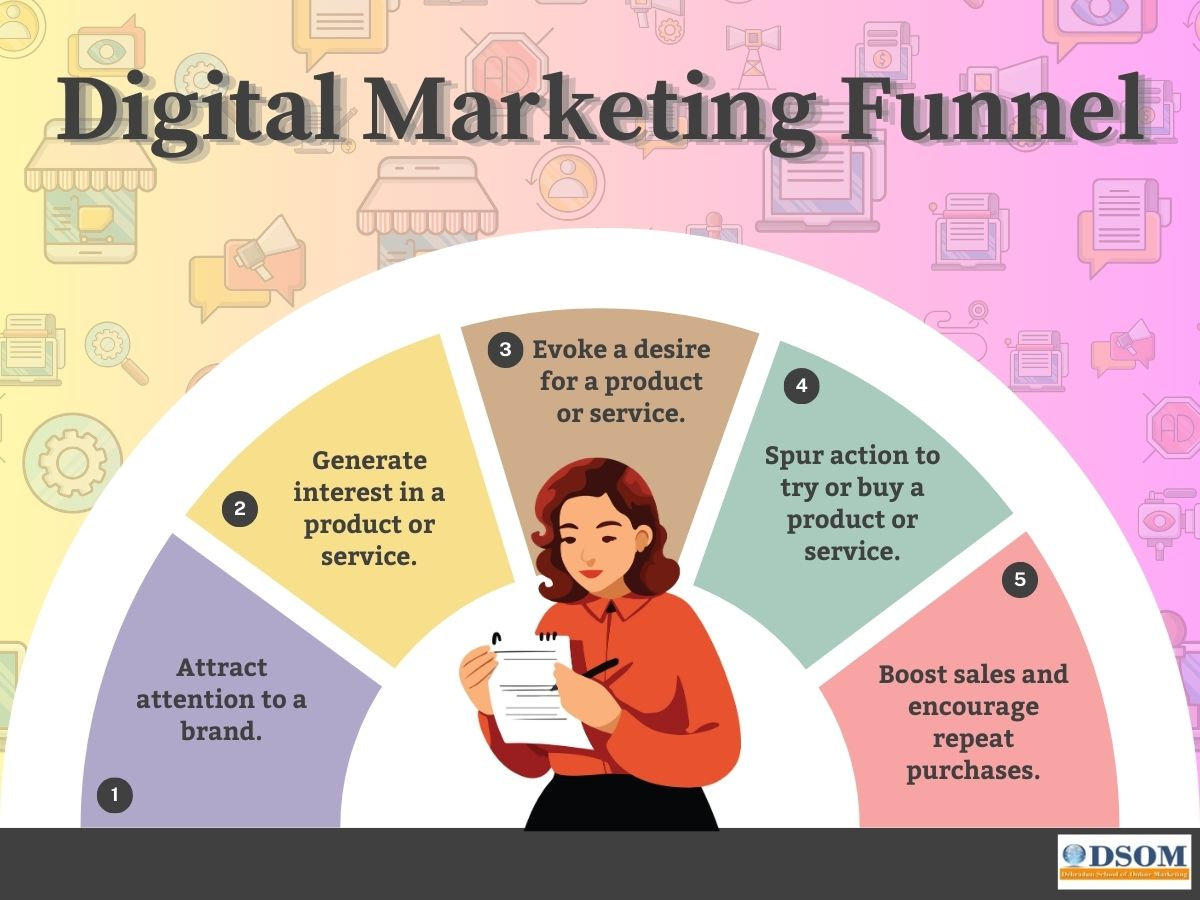 Building a Successful Digital Marketing Funnel: A Step-by-Step Guide
Building a Successful Digital Marketing Funnel: A Step-by-Step Guide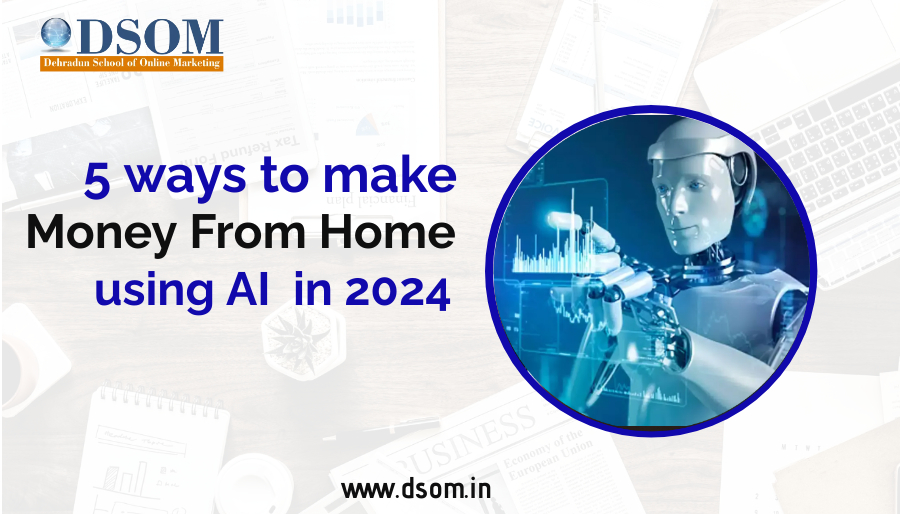 5 ways to make money from home using AI (Artificial-Intelligence) in 2024
5 ways to make money from home using AI (Artificial-Intelligence) in 2024